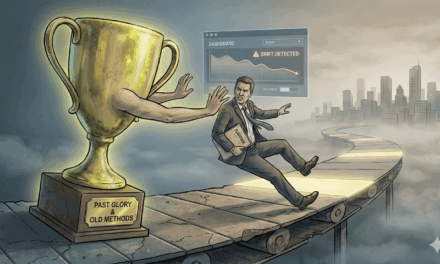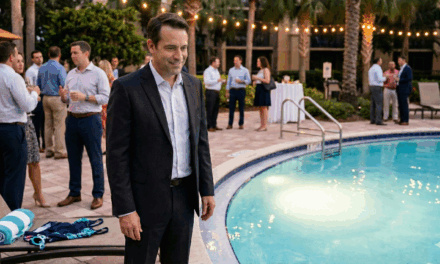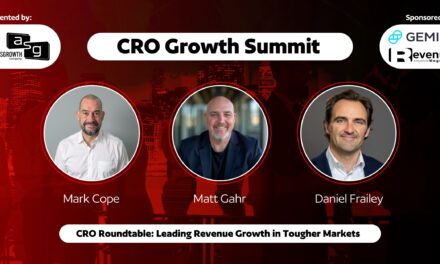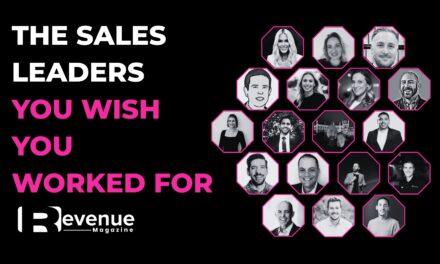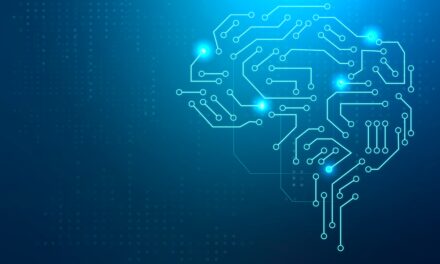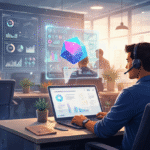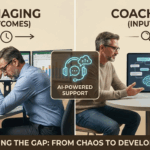
In the Future of AI, Humans will be your moat.

In the Future of Business and AI, Humans Will Be Your Moat
AI is everywhere, and I’m here for it. Agents, avatars, chatbots—call it what you want. AI is taking the heavy lifting off our plates, automating tasks that used to eat up hours of our day. As someone who’s been shouting from the rooftops about AI’s potential for years, you’d think I’d be all in on AI supremacy. And I am—to a point. But here’s my hot take: the future isn’t just AI. It’s humans and AI working together. And in that future, humans will be your moat.
Let me explain.
The Great Narrowing
The more AI evolves, the narrower our roles as humans become. AI systems can write code, generate content, analyze data, and even handle customer service with a level of efficiency that’s jaw-dropping. Tasks that once required a team of humans are now done in minutes by machines that don’t sleep, don’t take breaks, and certainly don’t demand a benefits package.
A recent survey of AI researchers predicted that by 2028, AI will be capable of autonomously building websites, fine-tuning large language models, and even generating creative works like music and stories indistinguishable from human-created ones.
What does that mean for us? It means that the range of things humans need to do will shrink. But that’s not bad news. It’s just different news.
AI will take over the tasks that are repetitive, data-driven, and transactional. What’s left for humans are the high-touch, deeply personal, trust-driven interactions that AI can’t replicate. Relationships. Connections. Empathy. The stuff that makes us human.
The Push for Live and In-Person
Think about it. As AI gets better at doing everything else, the value of human interaction skyrockets. This will show up in two big ways.
1. Online Live Events: There’s something irreplaceable about real-time human interaction. Whether it’s a webinar, a Q&A, or a brainstorming session, people crave the energy and authenticity that comes from being live with others. AI can’t replicate the back-and-forth of a live conversation. It can’t create those unscripted moments that build trust and rapport.
2. In-Person Events: The more digital our world becomes, the more people will crave face-to-face connection. Conferences, networking events, and workshops will carry even more weight. And the people leading those events? They’ll need to be exceptional at building relationships and creating genuine value.
The days of showing up, shaking a few hands, and calling it a day are over. If you’re leading a live or in-person event, you need to bring your A-game. Your ability to connect, to read the room, and to make people feel seen and heard will be your differentiator.
Humans + AI = Superhumans
Here’s the kicker. AI isn’t just automating tasks, it’s supercharging humans.
Let me put it this way: AI is like putting on Iron Man’s suit. Without it, Tony Stark is just a brilliant guy with some cool toys. With it, he’s unstoppable. AI does the same for us. It amplifies our thought leadership, our skills, and our ability to create value.
Imagine you’re a content creator. AI can draft your article, generate visuals, and optimize it for SEO. That frees you up to focus on strategy, storytelling, and connecting with your audience.
Or think about a sales professional. AI can analyze customer data, suggest next steps, and even handle routine follow-ups. That means you can spend more time building relationships and closing deals.
When you combine human creativity, empathy, and intuition with AI’s speed, accuracy, and scalability, you get something extraordinary: superpowered humans.
Why Humans Are the Moat (And Always Will Be)
Let’s dig deeper into this idea of humans being the moat. It’s not just that humans will do what AI can’t—it’s that humans will thrive precisely because of what AI enables. The skills, relationships, and creativity we bring to the table will be amplified, not diminished.
Think about this: as AI takes over more tasks, it doesn’t make us less relevant. It makes us sharper, more focused, and more valuable in the areas where we excel. In the future, humans will be the directors, the strategists, the creative powerhouses driving the ship. AI will execute the tasks, but the vision? That stays with us.
Amplified Skills, Narrower Focus
As AI narrows the scope of what humans need to do, it doesn’t mean we’ll be doing less. It means we’ll be doing more of the things that truly matter.
Picture this future:
•A sales professional no longer spends hours managing CRM data because AI has automated it. Instead, they spend that time deepening relationships with key accounts.
•A marketer doesn’t need to create dozens of ad variations or comb through analytics dashboards; AI has that covered. They focus on strategy, storytelling, and campaigns that emotionally resonate.
•An enablement leader uses AI insights to build tailored playbooks and training programs, freeing up time to coach teams directly.
AI doesn’t make us redundant, it supercharges us. It clears the noise and gives us the space to be exceptional at the few things we need to own.
AI won’t just make us better at one thing. It will create space for people who can do it all.
The Rise of the VP of Everything (or more than just one discipline)
Here’s where it gets spicy. In the future, we might see the emergence of a new role I like to call the VP of Everything or maybe VP of 3-4 focuses. This person isn’t just a specialist—they’re a master of interconnected disciplines.
Imagine someone who understands the nuances of marketing, enablement, RevOps, and strategy. They don’t just know the theory; they know how all these pieces fit together. They’re not in the weeds, executing tasks—that’s AI’s job. Instead, they’re overseeing the big picture, connecting dots, and ensuring the machine runs smoothly.
But here’s the critical part: the buck stops with them.
The VP of Everything is the ultimate decision-maker. They look over the work of AI, spot gaps the machine can’t see, and inject the human touch where it’s needed most. They’re the ones who ensure the outputs align with the company’s vision, values, and goals.
This not only applies to jobs, but to business owners or entrepreneurs.
The concept of a single individual steering a billion-dollar enterprise is no longer a distant dream. Tech leaders like Sam Altman, CEO of OpenAI, have predicted the emergence of one-person companies reaching billion-dollar valuations, driven by advancements in AI and automation. This shift underscores the increasing value of human creativity, strategic vision, and relationship-building as AI handles routine tasks. In this landscape, the human element becomes the critical differentiator—the moat—that sets successful ventures apart. (Every)
In a world where AI is ubiquitous, this kind of role will become invaluable. Why? Because even the smartest AI can’t make judgment calls, understand context, or build the trust that makes a team or strategy successful.
Creativity, Connection, and Accountability
What makes this future so compelling is that it’s built on uniquely human qualities. Let’s break it down:
1. Creativity: AI can generate ideas, but it can’t innovate in the way humans do. It can’t imagine a bold new strategy, push boundaries, or take risks that defy conventional thinking. Creativity remains our superpower, and AI simply expands our canvas.
2. Connection: Relationships are the foundation of any successful business. Whether it’s with your team, your customers, or your partners, trust and rapport are things only humans can build. AI can support these efforts, but it can’t replace the handshake, the smile, or the genuine empathy that fosters loyalty.
3. Accountability: The VP of Everything will own the outcomes. AI can provide the data and execute the tasks, but it doesn’t shoulder responsibility. It doesn’t care if the strategy succeeds or fails. Humans will still be the ones who step up, make the tough calls, and own the results.
Humans as the Amplified Moat
In this future, humans aren’t just the moat—they’re the amplified moat. Our creativity, empathy, and ability to see the big picture will set us apart, and AI will magnify those strengths.
Yes, people will become more narrowly focused on certain skills, but that specialization will feed into a broader, interconnected mastery of roles. The VP of Everything isn’t a jack-of-all-trades—they’re a master of synergy. They’re the conductor of an orchestra where AI plays all the instruments, but the human decides the tempo, the melody, and the meaning of the music.
The bottom line? As AI does more, humans will be required to do less—but the less we do will be exponentially more impactful. And those who can harness AI to amplify their skills, build stronger connections, and deliver unmatched value will be the ones who truly thrive.
Humans will always be the moat. And in the future of business and AI, that moat will be stronger than ever.
And that’s a future I’m excited to build. Let’s go.


